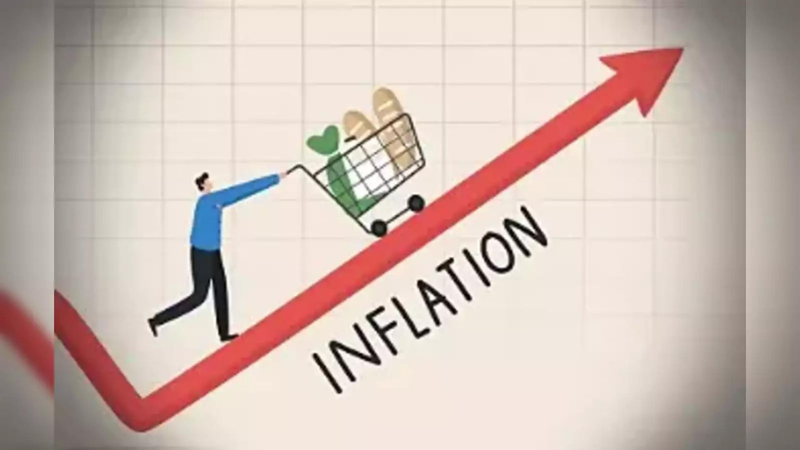What Is Inflation?
At its core, inflation refers to the rate at which the general level of prices for goods and services rises over time, leading to a decrease in the purchasing power of money. In simple terms, when inflation occurs, each unit of currency buys fewer goods and services than it did before.
For example, if the inflation rate is 3%, a product that cost $100 last year will now cost $103. While this may seem like a small increase, over time, inflation can significantly impact the cost of living and the value of money.
Types of Inflation
Inflation is not a one-size-fits-all concept. There are several types of inflation, and they can occur in different economic conditions:
- Demand-Pull Inflation: This occurs when the demand for goods and services exceeds their supply. When more people want to buy something than there is available, prices go up. A good example of this might be during a period of economic growth when consumer spending is high.
- Cost-Push Inflation: This type of inflation happens when the cost of production increases, causing businesses to raise prices to maintain their profit margins. Factors such as rising wages, increased raw material costs, or higher energy prices can lead to cost-push inflation.
- Built-in Inflation: Also known as wage-price inflation, this occurs when businesses increase prices to compensate for rising costs, while workers demand higher wages to keep up with the increased cost of living. This creates a feedback loop where both wages and prices continue to rise.
- Hyperinflation: A much more extreme form of inflation, hyperinflation occurs when prices increase uncontrollably, often by 50% or more each month. Hyperinflation is typically the result of a collapse in the country's monetary system, such as during times of political instability or war.
How Inflation Affects Us
Inflation has a direct impact on both individuals and the broader economy. Here’s how:
1. Purchasing Power
As inflation increases, the purchasing power of money decreases. This means that the same amount of money you have today will buy you fewer goods and services tomorrow. If wages don’t rise at the same pace as inflation, people may find themselves struggling to afford the same items or services they once could.
2. Cost of Living
One of the most noticeable effects of inflation is the rising cost of living. Everyday expenses like food, housing, transportation, and healthcare become more expensive. While inflation impacts all sectors of the economy, certain items tend to be hit harder, such as groceries, gasoline, and utility bills.
3. Interest Rates
Inflation can also influence interest rates. Central banks, like the Federal Reserve in the United States, often raise interest rates in response to inflation to prevent the economy from overheating. Higher interest rates mean that borrowing money becomes more expensive, affecting things like mortgages, car loans, and credit card debt.
4. Savings and Investments
Inflation can erode the value of savings over time. For example, if you keep money in a savings account with an interest rate lower than the inflation rate, the real value of your savings will decrease. On the flip side, inflation can impact investment returns, depending on the type of investment.
5. Wages
If inflation rises significantly, wages often need to adjust to keep up with the higher cost of living. However, wages don’t always keep pace with inflation, leading to a reduction in real income and potential dissatisfaction among workers.
Causes of Inflation
Several factors contribute to inflation. Here are the primary causes:
- Supply and Demand Dynamics: When demand for goods and services exceeds supply, businesses can raise prices due to the increased demand. A booming economy with low unemployment typically leads to demand-pull inflation.
- Increased Production Costs: When the cost of raw materials or labor rises, businesses may pass on these increased costs to consumers in the form of higher prices. For example, an increase in oil prices may lead to higher transportation costs, which could, in turn, raise the prices of goods.
- Government Policies: Governments and central banks can influence inflation through monetary and fiscal policies. For instance, if a government spends heavily or if a central bank prints more money to stimulate the economy, this can lead to higher inflation.
- External Factors: Global events, such as natural disasters, geopolitical tensions, or global pandemics, can disrupt supply chains, raising the costs of goods and services. These disruptions can lead to inflationary pressures.
The Role of Central Banks in Managing Inflation
Central banks play a significant role in managing inflation. Their primary tool for controlling inflation is monetary policy, which involves adjusting interest rates and controlling the money supply. When inflation is too high, central banks often raise interest rates to reduce borrowing and spending, which can help cool down the economy and slow inflation. Conversely, during periods of deflation (when prices are falling), central banks may lower interest rates to encourage spending and investment.
Inflation and Its Impact on the Economy
Inflation is not inherently bad—it can be a sign of a healthy economy, especially when it results from increased demand for goods and services. Moderate inflation encourages consumer spending and business investment. However, when inflation becomes too high or unpredictable, it can lead to economic instability. Hyperinflation, for example, can result in loss of confidence in the currency, leading to a collapse in economic activity.
In contrast, deflation (falling prices) can also be harmful, as it may lead to lower consumer spending, higher unemployment, and a stagnant economy. Central banks aim to maintain a stable rate of inflation—typically around 2%—to strike a balance between economic growth and price stability.
How to Protect Yourself from Inflation
While you can’t control inflation, there are steps you can take to protect your finances:
- Invest in Assets: Historically, investments like real estate, stocks, and bonds tend to outperform inflation in the long run. By investing in assets that grow in value over time, you can preserve your purchasing power.
- Focus on Long-Term Financial Goals: Keep in mind that inflation is a long-term phenomenon, so maintaining a focus on long-term financial goals can help you stay on track despite short-term fluctuations in prices.
- Adjust Your Budget: Be proactive about tracking your spending and adjusting your budget to accommodate rising costs. By keeping a close eye on your finances, you can make informed decisions about where to allocate resources.
Conclusion
Inflation is a crucial economic concept that influences everything from the prices of goods to the value of your savings. While moderate inflation is generally a sign of a growing economy, high inflation can lead to economic instability and erode purchasing power. By understanding inflation and its causes, individuals can better prepare for its effects, while policymakers can take steps to manage it through effective monetary and fiscal policies.



